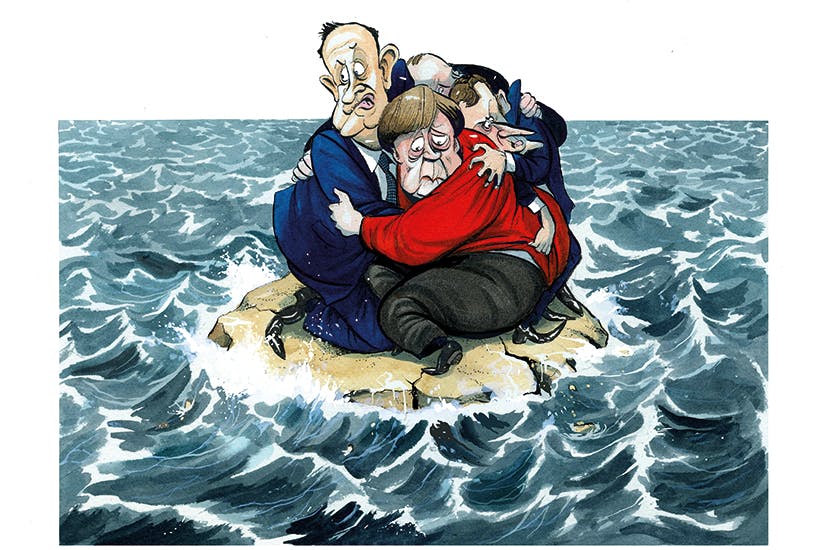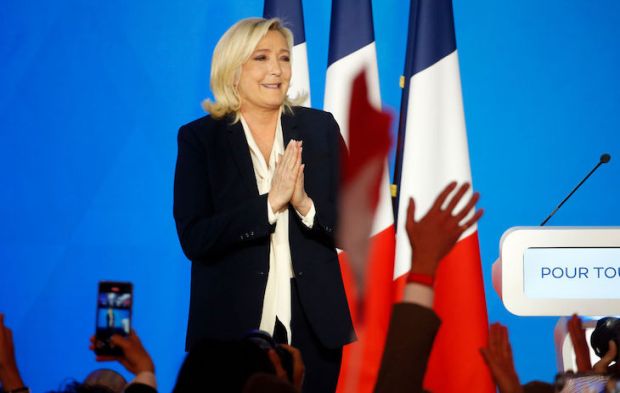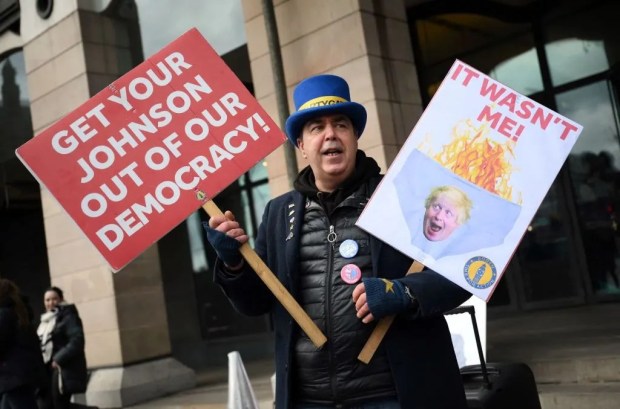In 1991, at the height of the first Gulf War, the EU demonstrated to the world its divisions and helplessness, as Belgium infamously blocked the export of munitions to the UK, then at war in the Gulf. They quickly came to regret it. The Belgian Foreign Minister subsequently remarked tellingly: ‘Europe is an economic giant, a political dwarf and a military worm’.
It seems these days that little has changed, save that even the EU’s claim to be an ‘economic giant’ is eroding with the loss of the world’s fifth largest economy, a dwindling share of world trade and a catatonic growth rate, even before the pandemic. Worse still, much of its relative economic decline is self-inflicted.
The pandemic has seen the EU tottering from one international humiliation to the next: PPE export bans within the bloc, a faltering vaccination roll-out and now a vaccine export ban, leading even the arch-federalist Guy Verhofstadt to deem the EU’s performance ‘a fiasco’. The perception and reality of the EU as a developed dynamic economic bloc that sets global standards is fast evaporating.
Even Emmanuel Macron, that great scion of EU-philia, confessed in an interview to Greek TV last week that the EU had performed poorly on vaccines, failing to take initiatives early, lacking the will ‘to shoot for the stars’, unlike the US (though he couldn’t quite bring himself to say the UK). Other than Macron’s criticism also being applicable to his own performance – like Molière’s Monsieur Jourdain in the Bourgeois Gentilhomme not realising he was speaking in prose – what he didn’t point to were the causes of the EU’s sloth and poor reactivity.
First is the EU’s totemic ‘precautionary principle’ that negates the vim and vigour of risk enterprise. Whereas the rest of the developed, dynamic world works on a cost benefit analysis, the EU’s prudential principle renders it incapable of rapidly drawing up contracts with pharmaceutical companies, investing proactively in vaccine production lines and understanding the nature of international contract law.
Second, realising that its own vaccine contracts with pharmaceutical companies were poorly framed, it is now seeking to destroy those private contracts through a vaccine export ban that will send shivers through industrialists thinking of investing in the EU, let alone encouraging others to move out. Even former President of the EU Commission, Jean-Claude Junker, warned that a vaccine export ban would do the EU ‘major reputational damage’. What better way to speed up the ‘economic giant’s’ slow puncture than by destroying the bloc as an environment in which to do business.
Third, for the EU – a soft power only construct – that habitually takes the moral high ground as a setter of international norms, a virtuous upholder of a rules-based international system, and a collective of free-trading nations, its vaccine bans and trampling on private legal contracts will be pounced on by its enemies and competitors globally.
As if this lamentable display of the EU in prolonged self-harm mode were not enough, its ‘political dwarf’ status is being further undermined internationally. In an increasingly competitive world where the international rules-based system is being challenged, the soft power at the core of the EU’s existence is being called out. At the best of times, soft power is only ever a supplement to hard power. In the realpolitik of present day international politics, Stalin’s quip about the real power of the Vatican – ‘How many divisions?’ – is all the more true. Or as President Theodore Roosevelt put it more kindly: ‘Speak softly and carry a big stick’. The EU’s problem is that it has no stick and is unlikely to have one in the near future. China has spotted this and has called the EU out over what it deems to be mere virtue signalling over human rights.
Over the years the EU has to a certain extent got away with its grandstanding of opposition to Russian infringement of human rights and breaches of the rules-based international order, with diplomatic gesturing and half-hearted sanctions while continuing with Nord Stream. That was because Russia played the game of ‘tit for tat’ fairly even-handedly; you expel three diplomats we expel three diplomats. But a far more powerful China does not want to play that western hemisphere game and the EU is firmly in its sights.
The EU declared persona non grata four Chinese officials and one institution for their role in the repression of Uyghurs, but Peking replied with ten Europeans and four institutions. The French Foreign Ministry summoned the Chinese ambassador in Paris to protest. He declined saying his agenda was full; however the EU’s ambassador in Peking was summoned by Chinese authorities at midnight and went. The French junior minister for Europe claimed the EU was not ‘a doormat’, clinging to Macron’s celebrated ‘European strategic autonomy’. The Chinese, via the Communist Party’s mouthpiece Global Times, scoffed at EU ‘power’ for seeking ‘to highlight its political existence by pressing for sanctions over ‘human rights issues’ against both China and Russia’ because it ‘perceives’ human rights as a ‘weapon’. The reason, it explained witheringly, is that the EU ‘doesn’t have the financial and military power that Washington has’.
China is calling the EU’s bluff and highlighting its ‘military worm’ status. Soft power is a fine thing, but hard power helps when the going gets tough; ‘all mouth and no trousers’ means humiliation sooner or later.
Got something to add? Join the discussion and comment below.
Get 10 issues for just $10
Subscribe to The Spectator Australia today for the next 10 magazine issues, plus full online access, for just $10.




















Comments
Don't miss out
Join the conversation with other Spectator Australia readers. Subscribe to leave a comment.
SUBSCRIBEAlready a subscriber? Log in